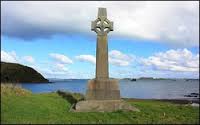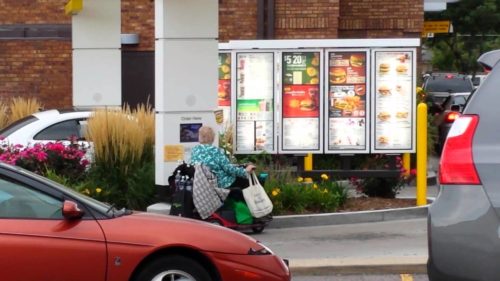
Some might be surprised by how much those aged from 30 to 49 dominate the bulk of the income earning in New Zealand. The correlation between being in this age group and median personal income was 0.73.
The correlation between being in the 50 to 64 age group and median personal income was almost, but not quite, significant, at 0.18. Some might find this surprising given that people in this age bracket tend to comprise the bulk of the senior positions in industry and government.
The reason for it is that there are very few such people, and the majority of the people in this age bracket reflect the educational standards of half a century ago, which were considerably lower.
The main reason why the bulk of the wealth is in the 30 to 49 age bracket is that this is also where the bulk of the education is. Being in this age bracket has a correlation of 0.60 with having a Master’s degree.
Most people are well aware that the bulk of old Kiwis are of European descent. And so, the correlation between being of European descent and being in the 65+ age bracket is 0.67, and with being in the 50-64 age bracket it is 0.71.
There are still many people of European descent in the younger age brackets, but the proportion of Maoris in these brackets is relatively much higher. The correlation between being Maori and being in the 0-4 age bracket is a very strong 0.82. For being in the 5-14 age bracket it is even stronger, at 0.85.
Pacific Islander Kiwis have positive correlations with all of the young age brackets, but they are only significant with the youngest two. Being a Pacific Islander and being aged 0-4 had a correlation of 0.44, and with being aged 5-14 it was 0.27.
The age of Asians reflect the strong correlation between being Asian and being foreign born, which was an extremely strong 0.91. Because so many Asian New Zealanders are foreign born, they will have had to have gone through the immigration system, which puts a high priority on young people who can work and pay taxes for a long time.
And so, there is a correlation of 0.49 between being aged 20-29 and being Asian, as well as a correlation of 0.57 between being aged 30-49 and being Asian.
One could surmise from the above that there is a significant correlation between being born overseas and being in the 20-29 age bracket (0.38) and being in the 30-49 age bracket (0.61). This reflects the fact that our points-based immigration system prioritises letting in those who have a large number of productive years ahead of them.
Some industries are well-known for being filled with people of a certain age group. Few readers will be surprised that there is a correlation of 0.51 with being aged 20-29 and working in the hospitality industry. There is also a predictable correlation of 0.37 between being aged 20-29 and working as a sales worker.
Some might be surprised at some of the correlations between age and income. There is a correlation of 0.25 with having an income of $150K+ and being aged in the 20-29 age bracket, and a a correlation of 0.24 with having an income of $100-150K and being in that age bracket.
The reason for this may be clear to anyone who has read the education chapter already. Young adults are often very well educated because of the liberalisation of access to higher education, and correspondingly there is a correlation of 0.53 with being aged 20-29 and being a professional. This is only marginally lower that the correlation of 0.55 with being aged 30-49 and being a professional, despite the much larger number of people in the latter group.
Those in the 30-49 age bracket, however, make up the vast bulk of Kiwi economic activity. This age bracket has a significant positive correlation for every income band above $50K. The most notable was a correlation of 0.60 between this age bracket and the $100-150K income band.
On the subject of the 20-29 age bracket, there was also a significant correlation between this and being in the two lowest income bands. Being aged 20-29 had a correlation of 0.57 with having an income between $0-5K, and a correlation of 0.47 with having an income between $5-10K.
The 30-49 age bracket, by contrast, has a significiant negative correlation with being in both of those income bands. Here it is -0.27 with being in the $0-5K income band and -0.42 with being in the $5-10K band.
As Kiwis get older than this, there are fewer who have extremely high incomes and fewer who have extremely low incomes. The bulk are in the comfortable middle zone. This may be because previous generations were more egalitarian in their outlook
It can be seen when our culture generally started to go off the idea of smoking cigarettes – it was in the mid 1980s. We know this because the 30-49 age bracket has a correlation of 0.58 with having never smoked, which stands in stark contrast with the figure for the 50-64 age bracket, which was -0.02.
People don’t seem to mind walking to work in their twenties. The correlation between walking to work and being aged 20-29 was 0.68. The next age bracket – people between 30 and 49 – had a correlation with walking to work of -0.02, which was much, much lower. This will reflect both increasing physical difficulty, naturally increasing laziness, an increase in the means to maintain a private vehicle and an increase in the desire to keep up the appearance of a certain social status.
Older people were significantly more likely to be South Islanders. Being in the 50-64 age bracket had a correlation of 0.33 with being in the South Island, and the 65+ age bracket had one of 0.27 with living there.
*
This article is an excerpt from Understanding New Zealand, by Dan McGlashan, published by VJM Publishing in the winter of 2017.



